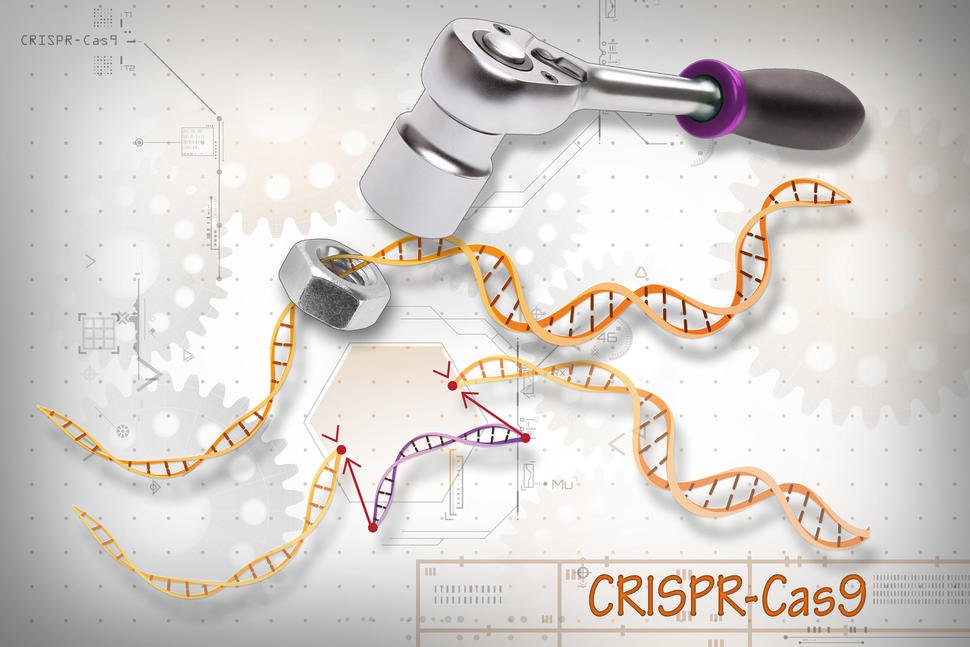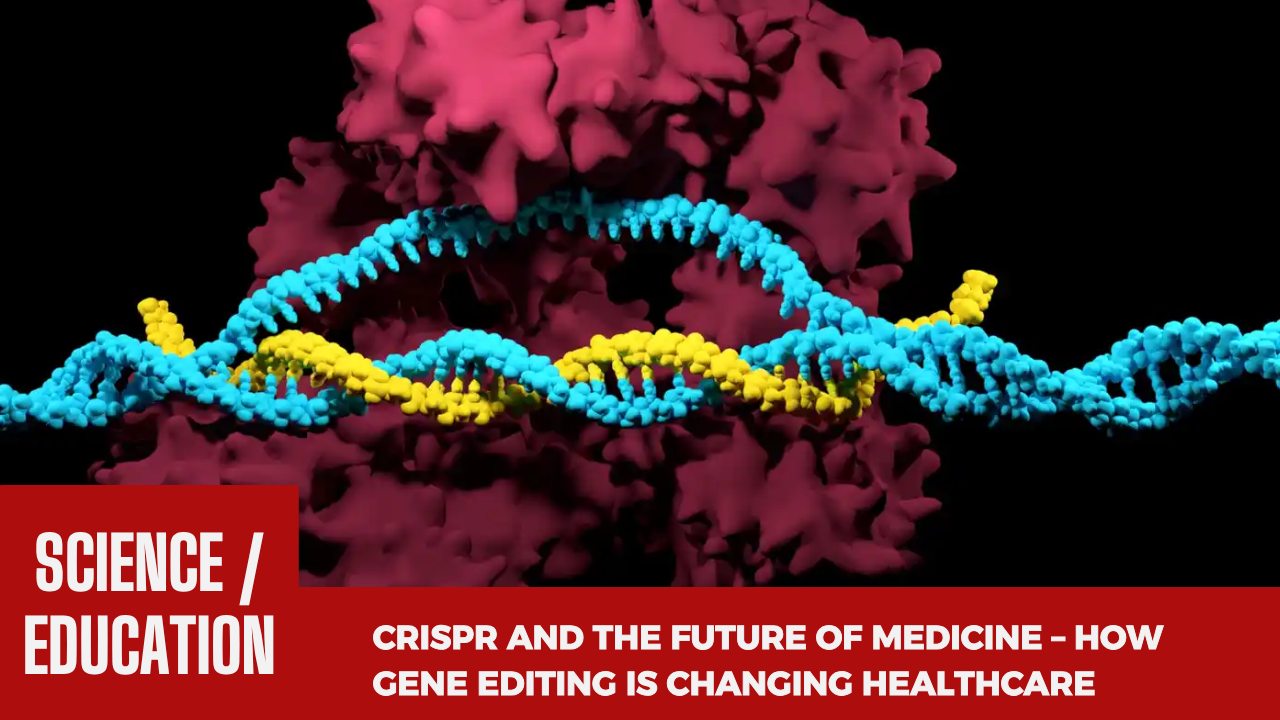By Rahul | Lifestyle & Health | September 10, 2025
For centuries, medicine has been about treating symptoms. Doctors could ease pain, fight infections, or slow diseases, but they couldn’t rewrite the very code of life. That began to change in 2012, when scientists discovered CRISPR — a tool that lets us edit genes with unprecedented precision.
Today, CRISPR isn’t just a buzzword in labs. It’s a technology with the potential to cure hereditary diseases, fight cancer, and even protect crops from pests. But as with all breakthroughs, it brings both excitement and ethical dilemmas. Could CRISPR be the scalpel that rewrites humanity’s future?
What is CRISPR?
Think of DNA as the instruction manual of life. Every cell carries this manual, written in genetic code. CRISPR (Clustered Regularly Interspaced Short Palindromic Repeats) is like a pair of scissors that can cut and edit this manual.
Discovered as part of bacteria’s defense system against viruses, CRISPR was adapted by scientists into a tool for gene editing. Paired with an enzyme called Cas9, it can precisely target a gene, cut it, and allow scientists to either remove, replace, or tweak the genetic sequence.
CRISPR in Medicine

The excitement around CRISPR comes from its potential in healthcare. Imagine being able to fix the root cause of diseases instead of just treating the symptoms.
- Curing Genetic Disorders: Diseases like sickle cell anemia and cystic fibrosis are caused by faulty genes. CRISPR trials are already showing promise in correcting these errors.
- Cancer Therapy: Scientists are experimenting with CRISPR to reprogram immune cells, making them better at attacking tumors.
- Infectious Diseases: CRISPR is being studied as a tool against viruses like HIV and even to detect COVID-19 quickly.
- Preventing Blindness: Early experiments suggest CRISPR could repair genetic mutations that cause inherited blindness.
Beyond Humans: CRISPR in Agriculture and Environment
Medicine isn’t the only field that benefits. CRISPR is also being used to create pest-resistant crops, reduce food waste, and even develop mosquitoes that can’t spread malaria. If successful, it could change not just healthcare, but global food security and public health.
Ethical Questions and Risks
But with great power comes great responsibility. Editing human DNA raises deep ethical concerns.
- Should we edit embryos to prevent diseases before birth?
- Where is the line between treatment and “designer babies”?
- What if mistakes occur, creating unintended mutations?
The debate isn’t just scientific — it’s moral. Countries are still shaping laws to decide how far CRISPR should go.
The Road Ahead
We are still in the early chapters of the CRISPR story. Clinical trials are ongoing, regulations are evolving, and scientists continue to refine the technology to reduce risks. What’s clear, however, is that CRISPR has already changed how we think about medicine.
For the first time, the idea of curing inherited diseases isn’t a dream — it’s a possibility within reach. And that makes CRISPR one of the most exciting, controversial, and hopeful discoveries of our time.
Scientists at Northwestern University have developed a breakthrough delivery method using DNA-coated nanoparticles. This innovation makes CRISPR three times more effective at entering cells & reduces toxicity compared to existing techniques.#CRISPR #GenomeEditing #Nanotechnology pic.twitter.com/Brp5lEGYZb
— geneXplain GmbH (@geneXplain) September 8, 2025
Final Thought
Every scientific leap comes with a mix of promise and fear. Just as electricity once scared people before lighting up the world, CRISPR challenges our imagination and our ethics. Whether it becomes the key to curing humanity’s worst diseases or a tool we misuse depends not just on scientists, but on society as a whole.
FAQs
Q1: What diseases can CRISPR cure?
Early trials focus on sickle cell anemia, cystic fibrosis, and certain cancers.
Q2: Is CRISPR safe for humans?
Research is ongoing. While results are promising, long-term safety is still being studied.
Q3: Can CRISPR create “designer babies”?
In theory, yes. But most countries have strict bans on editing embryos for non-medical traits.
Q4: How is CRISPR used outside medicine?
It’s used in agriculture to make crops resistant to pests and in environmental science to fight diseases spread by insects.
Q5: Who discovered CRISPR?
The CRISPR-Cas9 gene-editing system was developed by Jennifer Doudna and Emmanuelle Charpentier, who won the Nobel Prize in Chemistry in 2020.
Read more health realted blog :
- Sunday Health Reset: Simple Digital Detox Ideas for a Calmer, Stress-Free Sunday
- Malaria Treatment in 2025 – Old Enemy, New Battles
- Adjustment Disorder: Signs, Causes, and Treatment Options
About the author, Rahul covers health and lifestyle with a practical touch — from fitness routines to new research. His writing helps readers make choices that improve daily living.read more
Disclaimer
This article has been prepared and published by Newstic.in for informational and news reporting purposes only. While every effort has been made to ensure accuracy and reliability, readers are advised that details such as prices, specifications, dates, or other event-related information may change over time. Newstic.in does not take responsibility for any business or personal decisions made based on this content. For the latest updates, always refer to official announcements, verified sources, or consult with relevant professionals. Opinions expressed by analysts, buyers, or third parties quoted in this article are their own and do not necessarily reflect the views of Newstic.in.















